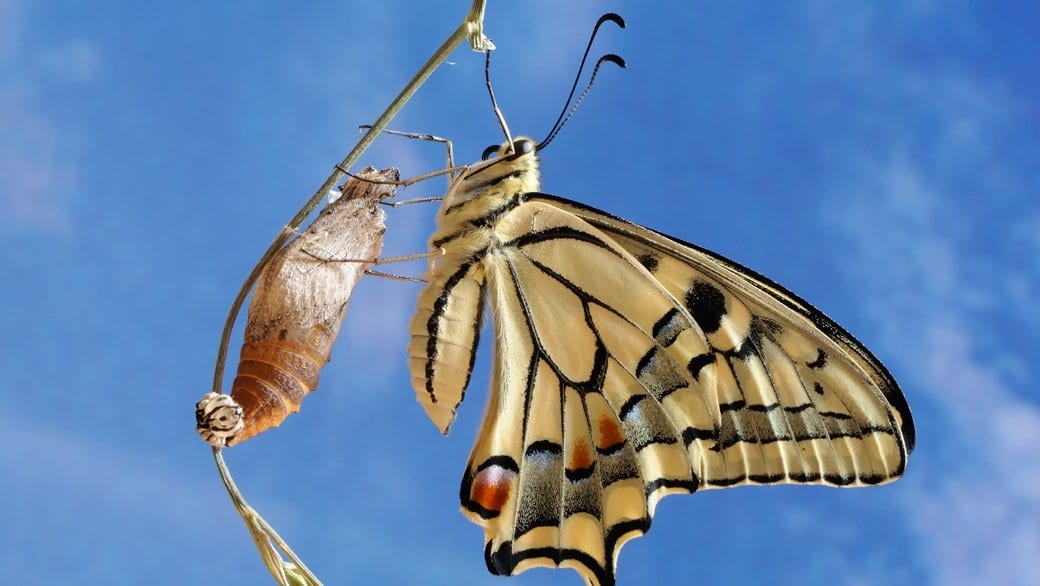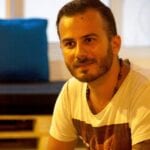Butterflies are beautiful creatures. Their journey from caterpillar to cocoon to colourful butterfly illustrates the beauty and dynamism of life.
Like butterflies, refugees to Canada have their own evolution, one I’ve experienced first-hand living for the last two years in Vancouver.
I think we should respect that evolution. An assumption that gets on my nerves is that gay refugees will shed their old skin, covered in scars from the homophobic communities they left behind, and replace it with a new colourful skin that fits into Canadian society.
I can tell you this is not true; this change takes time, effort and painful transformation. This is not because Canadian LGBT society is not welcoming, or because refugees don’t want to integrate. It’s a simple fact of life: Change is not easy. Immigration is a sudden change, and accepting and celebrating it requires time and hard work, from both the newcomer and society.
I believe this change happens in three stages, just like the transformation of a butterfly.
The honeymoon phase
Like a newborn caterpillar, we devour everything joyfully. Vancouver looked delicious and inviting to me, and I immersed myself in every corner of it.
When I first arrived in Vancouver, my motto was simple. “Everything is awesome,” I would say to friends and people I met in the streets. Everything indeed looked awesome, inviting, beautiful and worth exploring. Every cultural event felt stunning and brand new, and every person I met felt special and interesting and unique.
The bars felt open and welcoming, the streets felt wide and safe, and the people felt caring and dear. It wasn’t love at first sight; it was marriage at first sight. I met Vancouver, moved in with the city, married it, and was ready to have its babies.
But we can all imagine what such a marriage looks like down the road.
I adored Vancouver, but not from an authentic love for its people, streets, restaurants or gay scene. It was because the city was different from everything I’d ever experienced before; it was different and new and safe and welcoming and open.
A gay refugee needs the community’s support to recognize this, and to also recognize that it’s not the full truth.
Like anywhere in the world, living in Vancouver can be difficult and challenging. It’s not always rainbows and parties and yummy food and hangouts with friends. There is the search for elusive work, the unaffordable housing market, the transit mess and the challenge of finding friends here, for example.
While life here may be 100 times better than living in the homophobic communities they come from, it still has its own unique challenges.
The cocoon phase
This phase seems to occur at different times for different people, but all the LGBT refugees I have spoken to say they have gone through it at one time or another.
At some point, we all recognize that we face challenges: finding meaningful work, building authentic relationships, finding housing, or dating. These are the same challenges most Vancouverites grow up facing, but instead of handling it one step at a time, the gay refugee must do them all within the first couple of months after arrival.
Why would we put this much pressure on the refugees to adjust? Sometimes, it’s based on need: we need to live, eat, drink, buy clothes and find ourselves a good home. Sometimes, it’s a drive: I needed to feel like a useful member of the community.
But this is where refugees sometimes feel stuck; it’s extremely challenging to update your resume to fit the Vancouver job market, find the right home for yourself, find friends, and learn to be a part of the community. Change is not easy; a billion changes at the same time are almost impossible.
Don’t forget, the refugee is doing all of this while still missing home. Because home is not simply homophobia, it’s also family, friends, lovers, streets you know, people you see every day. All gay refugees escape homophobia and transphobia but they also leave behind so much, and lose so much to become their true selves.
Some refugees might retreat, might feel like they don’t want to go out and would rather hide at home. Some might abuse drugs and alcohol to hush the anxiety, some might face depression and cultural shock.
A gay refugee needs the community’s support in this case, not its judgment. Don’t tell them to get over it, or that “happiness comes from within.” Don’t make them feel guilty for the natural feelings they have, or deny them the right to this process.
Help them overcome these challenges, support them in finding meaningful work and help them find them volunteer work while they wait. Help them get in touch with other community members from their own backgrounds, and support them to find peace through counselling.
The authentic love phase
The refugee has made it through the hard times, and learned a thing or two about their own strengths and abilities. They’re ready to be an equal member of the community, and to become Canadian.
The refugee loves the city, not because it’s better compared to their lives before, but because they love that sushi restaurant, adore that street corner where they hang out with friends and have walked so many times over the rainbow crosswalk that it has become normal to them.
They are in love with a city that means something authentic to them, not because they’re forced to love it instead of their homeland.
The community’s job now is to accept that the refugee has finally came to the other side of their journey, and to regard them as an equal. Their refugee past is gone; they’re now part of society, and similar to you in every way. They don’t need to be grateful for being here anymore because it’s their safe haven; they can be grateful to be here because — like other Canadians — they truly love Canada.
Your job now is to step back and let them love this city and this immcountry truly, passionately and without expectations.


 Why you can trust Xtra
Why you can trust Xtra


